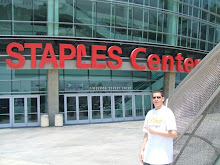We, as human beings separated, isolated, have not been able to solve our problems; although highly educated, cunning, self-centered, capable of extraordinary things outwardly, yet inwardly, we are more or less what we have been for thousands of years. We hate, we compete, we destroy each other; which is what is actually going on at the present time. You have heard the experts talking about some recent war; they are not talking about human beings being killed, but about destroying airfields, blowing up this or that. There is this total confusion in the world, of which one is quite sure we are all aware; so what shall we do? As a friend some time ago told the speaker: "You cannot do anything; you are beating your head against a wall. Things will go on like this indefinitely; fighting, destroying each other, competing and being caught in various forms of illusion. This will go on. Do not waste your life and time." Aware of the tragedy of the world, the terrifying events that may happen should some crazy person press a button; the computer taking over man's capacities, thinking much quicker and more accurately - what is going to happen to the human being? This is the vast problem we are facing.
There is an element of violence in most of us that has never been resolved, never been wiped away, so that we can live totally without violence. Not being able to be free of violence we have created the idea of its opposite, non-violence. Non-violence is non-fact. Violence is a fact. Non-violence does not exist, except as an idea. What exists, "what is," is violence. It is like those people in India who say they worship the idea of non-violence, they preach about it, talk about it, copy it - they are dealing with a non-fact, non-reality, with an illusion. What is a fact is violence, major or minor, but violence. When you pursue non-violence, which is an illusion, which is not an actuality, you are cultivating time. That is, "I am violent, but I will be non-violent." The "I will be" is time, which is the future, a future that has no reality; it is invented by thought as an opposite of violence. It is the postponement of violence that creates time. If there is an understanding and so the ending of violence, there is no psychological time.
Do not ask me what psychological time is. Ask that question of yourself. Perhaps the speaker may prompt you, put it into words, but it is your own question. One has had a son, a brother, a wife, father. They are gone. They can never return. They are wiped away from the face of the earth. Of course, one can invent a belief that they are living on other planes. But one has lost them; there is a photograph on the piano or the mantelpiece. One's remembrance of them is in psychological time. How one had lived, how they loved me; what help they were; they helped to cover up one's loneliness. The remembrance of them is a movement in time. They were there yesterday and gone today. That is, a record has been formed in the brain. That remembrance is a recording on the tape of the brain; and that tape is playing all the time. How one walked with them in the woods, one's sexual remembrances, their companionship, the comfort one derived from them. All that is gone, and the tape is playing on. This tape is memory and memory is time. If you are interested, go into it very deeply.
Most of us are afraid of something or of many things; you may be afraid of your wife, of your husband, afraid of losing a job; afraid of not having security in old age, afraid of public opinion - which is the most silly form of fear - afraid of so many things - darkness, death and so on. Now we are going to examine together, not what we are afraid of, but what fear is in itself. We are not talking about the object of fear, but about the nature of fear, how fear arises, how you approach it. Is there a motive behind one's approach to the problem of fear? Obviously one usually has a motive; the motive to go beyond it, to suppress it, to avoid it, to neglect it; and one has been used to fear for the greater part of one's life, so one puts up with it. If there is any kind of motive, one cannot see it clearly, cannot come near it. And when one looks at fear, does one consider that fear is separate from oneself, as if one was an outsider, looking inside, or an insider looking out? But is fear different from oneself? Obviously not, nor is anger. But through education, through religion, one is made to feel separate from it, so that one must fight it, must get over it. One never asks if that thing called fear is actually separate from oneself. It is not, and in understanding that, one understands that the observer is the observed.
Thursday, September 25, 2008
Subscribe to:
Post Comments (Atom)

No comments:
Post a Comment